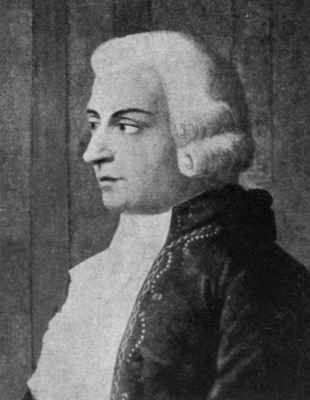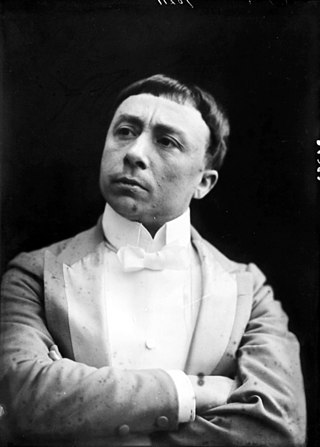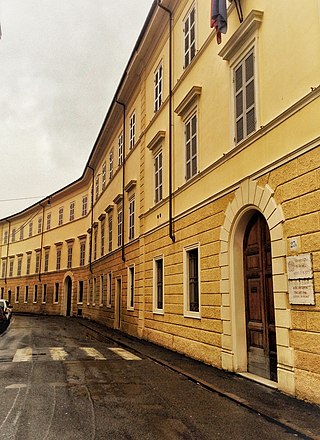
Domenico Morgante (Monopoli, 1956) is an Italian musicologist, organist and harpsichordist. [1]

Domenico Morgante (Monopoli, 1956) is an Italian musicologist, organist and harpsichordist. [1]
Graduated and specialized Cum Laude in Musicology, Organ, Harpsichord, Educational Sciences, he was a student of Luigi Ferdinando Tagliavini, Gustav Leonhardt, Colin Tilney, Marie-Claire Alain, Sergio Vartolo. As a researcher he has worked on various European Projects of Music. Of many compositions of the past has performed salvages and restorations critics (Girolamo Frescobaldi, [2] Giorgio Lapazaya, [3] [4] [5] [6] [7] [8] Jacquet de Berchem, [9] [10] [11] [12] Giacomo Insanguine, Salvatore Fighera, Onofrio van Westerhout, Giuseppe de Ferrariis). [13] As a musicologist has to his credit a hundred publications in Italy and abroad. At the end of the 1960s, though very young, was among the first in Italy to deal with philological interpretation of Ancient Music and the concertism with historical instruments. [14] [15] [16] He directed the restoration of important historical keyboard instruments, collaborating on several occasions with the Italian Ministry of Cultural Heritage and Activities. [17] [18] Since its founding in 1985 he has been the Director of the Mediterranean Institute of Musicology. He was awarded Professor Emeritus in the Organ Academy "Giacomo Insanguine" of Monopoli (Bari), for his outstanding teaching in the field of the organ he was awarded the Premio Abbiati Italian Music Critics under the High Patronage of the President of the Republic (Fiesole, 2008). [19] [20] In 2013 he received awards from the art world and from the Albanian academic world (Biennale Music, Durrës; Ministry of Culture, Tirana). [21]
Charles-Antoine Campion, italianized as Carlo Antonio Campioni was a French-Italian composer who was born in Lorraine, France. He was a prolific composer and represented a link between Baroque compositional methods and those of the Classical style.

Domenico Allegri was an Italian composer and singer of the early Baroque Roman School. He was the second son of the Milanese coachman Costantino Allegri, who lived in Rome with his family, and was a younger brother of the more famous Gregorio Allegri. Costantino sent three sons, Gregorio, Domenico and Bartolomeo, to study music at San Luigi dei Francesi, under the maestro di capella Giovanni Bernardino Nanino, brother of Giovanni Maria Nanino. The little boy had as schoolmates his elder brother Gregorio and then Antonio Cifra, Domenico Massenzio and Paolo Agostini.

Monopoli is a town and municipality in Italy, in the Metropolitan City of Bari and region of Apulia. The town is roughly 156 square kilometres (60 sq mi) in area and lies on the Adriatic Sea about 40 kilometres southeast of Bari. It has a population of 49,246 (2014), and is important mostly as an agricultural, industrial and tourist centre.
Francesco Angiolieri, known as Cecco Angiolieri was an Italian poet.
Jacquet de Berchem was a Franco-Flemish composer of the Renaissance, active in Italy. He was famous in mid-16th-century Italy for his madrigals, approximately 200 of which were printed in Venice, some in multiple printings due to their considerable popularity. As evidence of his widespread fame, he is listed by Rabelais in Gargantua and Pantagruel as one of the most famous musicians of the time, and the printed music for one of his madrigals appears in a painting by Caravaggio.

Giacomo Antonio Francesco Paolo Michele Insanguine was an Italian composer, organist, and music educator. He was the last director of the conservatoire of Sant'Onofrio in Naples, which merged in 1795, two years after Insanguine's death in Naples, with the conservatoire of Santa Maria di Loreto. The most important and up-to-date critical study on him was recently published in an Anthology of unpublished eighteenth-century music in Puglia.

Pino Rucher was an Italian guitarist active in orchestral settings and in film soundtracks.

Giorgio Lapazaya was an Italian mathematician and musician of Albanian descent.

Luigi Ferdinando Tagliavini, was an Italian organist, harpsichordist, musicologist and composer.
Andrea Della Corte was an Italian musicologist and critic. Born in Naples on 5 April 1883, Della Corte studied law at the University of the native city, but was self-taught in music. After some short experiences in Neapolitan papers, he moved to Turin, where he was music critic for La Stampa from 1919 to May 1967. He brought the music journalism in Italy to a level of «professionalism hitherto unknown». In Turin, Della Corte also taught history of music, both at the Turin Conservatory (1926–53) and at the University of Turin (1939–53).
Alberto Basso is an Italian musicologist and librarian.

Nicola Maldacea was an Italian actor, comedian and singer, well-known for his expertise in the theatrical genre of 'macchietta', where he was one of the pioneers. In the golden years of the café-chantant in Italy, between 1890 and 1920, Maldacea was the star who closed the show together with the prime donne who symbolised the belle époque such as Lina Cavalieri or La Belle Otero. He sang duets with national and international stars, such as Emilia Persico, Amina Vargas, Eugénie Fougère, La Tortejada, Lucy Nanon, and above all with the Neapolitan Amelia Faraone, but also led his own theatre companies.
Giovan Gualberto Brunetti was an Italian composer.

Alessandro Felici was an Italian composer and violinist, not to be confused with his contemporary, Roman composer Felice Alessandri.

Mauro Cardi is an Italian composer.
Salvatore Fighera was an Italian composer of both sacred and secular music. Born in Gravina in Puglia, he completed his musical studies at the Conservatorio di Sant'Onofrio a Capuana in Naples and spent several years in Milan after leaving the conservatory in 1783. On his return to Naples he served as the maestro di cappella of several churches, most notably the Santuario di San Sebastiano Martire, a post he held until his death.
Giuseppe Paoloucci was an Italian composer, conductor and organist of Baroque music.

Giorgio Otranto was an Italian historian, specialized in the history of early Christianity.

The Conservatorio di Musica Arrigo Boito, better known in English as the Parma Conservatory, is a music conservatory in Parma, Italy. It was originally established as the Regia Scuola di Canto, a school for singing in 1819 by Marie Louise, Duchess of Parma, and expanded into a conservatory of music in 1825. In 1840 instrumental music instruction began, followed by the addition of music composition, conducting, and other musical studies.